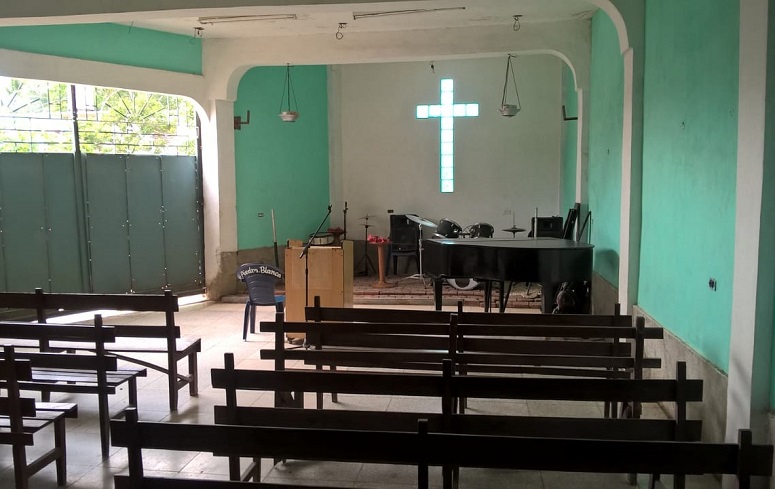Raúl Castro, who replaced his brother Fidel as Cuba’s president in 2006, stepped down from the post this week, ending a decades-long rule by his family.
His successor, Miguel Díaz-Canel – who up until now was the country’s first vice-president – takes on an historic leadership role by becoming the first president outside the Castro clan to lead the government.
Despite the expectation this shift in power generates, analysts and researchers doubt it will lead to a political transition or a significant change in the way the country is governed, at least not while Raúl Castro remains head of the Communist Party and the natural leader of the Cuban Armed Forces, which controls much of the economy.
“Díaz-Canel has publicly declared that he is not a reformer and that he will defend the ideals of the revolution.”
Among religious leaders, political dissidents and human rights activists interviewed for a report by the Observatory of Religious Freedom in Latin America, no changes in the area of religious rights are expected to happen and uncertainty prevails over what the new leadership would mean for the future of the country.
“Díaz-Canel is considered to be a generational continuation of the revolution… Beyond any expectation, Díaz-Canel has publicly declared that he is not a reformer and that he will defend the ideals of the revolution,” says the report, written by Dennis Petri and José Antonio Pastor.
The report quotes Arturo Lopez Levy, a political scientist and expert on Cuba, who says change in the leadership of the country will not mean greater political openness. “The current political elite is not going to commit political suicide,” he says, “and much less under the hostile conditions that the US government maintains toward Cuba.”
Persecution and repression
During the six decades the Castro family has ruled the island, the Church has suffered a great deal of repression and persecution. Church activities are totally controlled by the government, and public meetings to evangelise are not permitted. Religious ministers are often harassed and even jailed, and there have been many incidents involving physical and mental abuse, as well as attacks against pastors’ homes.
In 2017, the Observatory of Religious Freedom in Latin America reported a series of violent incidents against Christians in Cuba, including a total of 1,322 arrests, 873 cases of physical or mental abuse, four sentences and seven attacks on the homes of religious ministers.
“A large number of activists are arrested every week on their way to Sunday morning mass or any other religious events.”
The reported cases affect churches all around the island. “Human rights activists with links to churches and other religious organisations have also suffered repression by the government, which isolates them not only from society in general but from their religious communities,” the report says.
Attending Sunday mass or services can be a risky activity in Cuba. “Dozens of women linked to the Ladies in White – an opposition movement founded in 2003 by the wives and other female relatives of jailed dissidents – and a large number of other activists, are arrested every week on their way to Sunday morning mass or any other religious events,” the report says.
Waiting to be legally recognised

One of the most pressing problems that churches and other religious groups face in Cuba is the lack of legal recognition. While the government appears to be more flexible regarding the Muslim groups and those linked to Afro-Cuban beliefs, the official guidelines are more strictly applied to Catholic and Evangelical churches, limiting their religious freedom.
The annual report of Christian Solidarity Worldwide pointed out that many Cuban churches have been waiting for more than two decades for a legal permit to officially exist, something that has forced many to meet illegally and, at the same time, become vulnerable to the confiscation or demolition of their places of worship.
Although there is a perception that greater openness in regards to religious activities is already happening in Cuba, not everyone believes that to be the case. “There is more tolerance on some issues,” one pastor, whose real name is withheld, is quoted as saying in the report. “Before we had to provide the Ministry of Justice with a list of all the members of our congregations every so often. They no longer ask for it, but for each activity that we organise, they require we provide information about all the people who will be attending.”
“The authorities decide at the last minute whether to grant the permit or not. Imagine what that means for us!”
According to the pastor, despite these requirements, there is never a guarantee that government officials will allow the activity to go ahead: “The authorities decide at the last minute whether to grant the permit or not. Imagine what that means for us! And we still have these infiltrated agents who monitor each activity carried out by religious groups.”
As for what changes, if any, can be expected from Díaz-Canel’s government, the pastor remains very cautious: “Like others, if he falls into disgrace, he will quickly disappear from the political scene. In addition, he does not have the conditions to make a change. While the Party is under the direction of Raúl Castro, this will remain the same.”
Particularly interesting, says the pastor, will be possible new appointments in key positions related to religious policy, including the Office for Religious Affairs and the Council of Churches of Cuba.
Mariusa Reyes worked for the BBC for more than 20 years, including as a foreign correspondent reporting on the Latin America region. She has lived and worked in Cuba and has travelled extensively around the whole LatAm region.